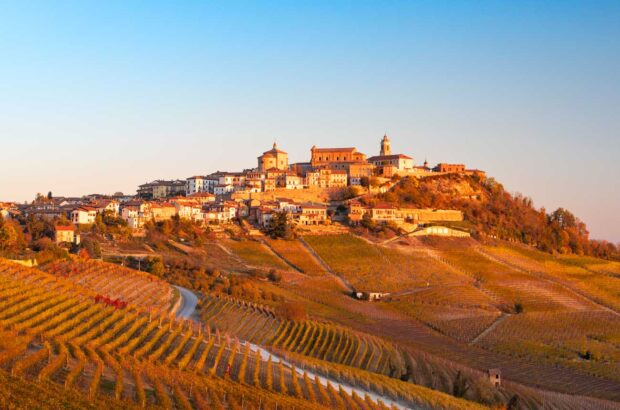Drinking a glass of ‘Sussex’ could soon become a reality with English wine producers poised to bid for the same protected name status as Champagne and Bordeaux.
Vines at Ridgeview in Sussex, which could enjoy similar protection to those in Champagne
The move could provide Sussex wineries with a Protected Designation of Origin (PDO) status across the European Union, with more stringent standards than English wine in general.
Sussex is home to the largest cluster of vineyards in the UK and the region has a similar climate and soil types as Champagne.
Producers in Sussex predominantly make sparkling wine, but Decanter.com has learnt that the PDO application is set to include both sparkling and still wines. Producers were aiming to complete an application this month.
Moves to create a Sussex PDO have won support from the UK government and the South East Vineyards Association, and come amid reports of rising consumer demand for English wines.
Sussex sparkling wine would have longer lees aging – 15 months in bottle – like Champagne. It would also have a higher level of minimum alcohol content.
Jamie Everett, chief operating officer of Rathfinny winery, a producer spearheading the campaign, said Sussex PDO would also have stricter rules on analytical testing than English wine. Rather than a ‘no faults test’, Everett said all wines would have to pass a qualitative assessment.
Tamara Roberts, CEO of Ridgeview vineyard said contract winemaking in Sussex would no longer be permitted. ‘Sussex PDO would have to be produced in Sussex from grapes grown in Sussex.’
Roberts, a member of the Sussex PDO committee, said local winemakers broadly backed the proposals, but there were some concerns over funding, the use of grape varieties and getting caught up in the bureaucratic process.
Sussex sparkling wine would have the same grape varieties as Champagne, plus Arbanne, Pinot Gris, Pinot Blanc and Petite Meslier may also be included. For still wines, Pinot Gris, Pinot Noir, Bacchus and Ortega are expected to be among the varieties selected.
Sam Linter, head winemaker at Bolney, dismissed any concern that smaller producers could be left out if they fail to meet proposed standards. ‘Quality of production is about the site, the grapes and how you grow them; smaller producers can achieve the same quality as larger ones,’ she said.
See also:
Written by Barnaby Eales







